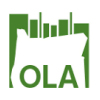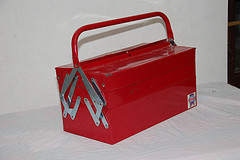I am a prolific reader. I read all the time. I suspect I’m like a lot of folks – I’ve gone from carrying around a book with me to carrying my smart phone. These days my go to for a reading fix during the day is twitter, email, and websites.
So, if it wasn’t obvious by my previous post, I’m new to the library world. My PhD is in Instructional Technology & Learning Sciences from Utah State University. I was lucky that my time there was spent hanging out with K-12 teachers and digital libraries (and open educational resources), and that one of my committee members is now a librarian at another university. I say lucky because it means during my PhD I was exposed to libraries, at least a little bit. Then when I got to Purdue, that was when I discovered how incredibly cool it would be to have a career here in academic libraries (I will always be grateful to the Purdue librarians for pushing me in this direction!).
So, all that said – once I got here to Oregon State University I did what I do – I started to read. That’s the point of the post – reading. What do I read that’s about libraries, particularly assessment? Good question.
Every day I read The Chronicle of Higher Education & Inside Higher Ed. I read these because academic libraries are situated within this larger environment of higher education. What impacts higher ed impact us. It also keeps me aware so when I meet with my assessment colleagues across campus I know what they are thinking about. Plus, Inside Higher Ed has Library Babel Fish.
On the library side of things I have started to read College & Research Libraries News, Association for Research Libraries News, and Library Journal. While not specifically about assessment, sometimes they do cover assessment and they keep me up to date about what the library world is thinking about. I try to get to these once a week.
The very first thing I read when I started my job back in December was Megan Oakleaf’s The Value in Academic Libraries. It’s a long read, but it was super helpful to me to understand how assessment is situated in academic libraries. I’ve also been meaning to spend time in the archives of the Evidenced Based Library and Information Practice journal. Yep yep, I need to spend time just hanging out with the journal because it’s another tool to help me understand this new environment I’m in, as well as to keep me up to date on assessment trends and give me ideas for things maybe we should be looking at here at Oregon State.
The last area I’ll mention is I’ve started to understand critical pedagogy. In a previous life I was a peace activist so it makes sense that I would be interested in looking at what I do through a critical lens. We have a copy of Critical Library Instruction: Theories and Methods in our library faculty / staff library here at Oregon State, and there is a chapter on assessment. Beyond that though, outside of the library world, I recently the article Assessment for Whom: Repositioning Higher Education Assessment as an Ethical and Value-Focused Social Practice. It’s a critique of what assessment has become within higher ed and reminds me that assessment is actually a great tool for helping us to become better at what we do. After all – as much as the tools and methods of assessment are wickedly fun to play with, isn’t the real reason to do it because we want to become better at what we do? I think so, that’s why I’m doing it.
So, what do you read, and what should I be reading that I’m not?
🙂

 miss out on this fabulous opportunity to give a presentation at OLA and have it sponsored by LART. Guidelines are
miss out on this fabulous opportunity to give a presentation at OLA and have it sponsored by LART. Guidelines are 

